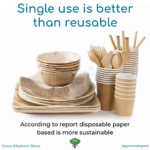What are Core Values?
We all have personal Core Values. These are the things that we find the most important. Values influence our decision making and life choices. They are our principles, beliefs and philosophies and help define us as individuals. We can control our personal Core Values, although they are influenced from birth. We can decide and adjust our Core Values and then use them to direct our actions, even if we don’t realise it.
Corporate Values or Company Values perform the same job as personal Core Values but have an additional challenge. The Core Values of an organisation also give it an identity, a foundation for consistent decision making and a set of principles by which to work. However, the problem is, an organisation is not an individual. It is, instead, a collection of people who need to agree on common values and apply them consistently – and there’s the real challenge.
The Core Value Challenge
If someone was to ask you what your personal Values were, would you be able to answer them quickly and concisely? Possibly not, because your Values are difficult to put your finger on.
There are some qualities we are all likely to value such as, honesty, love, compassion and justice which are usually automatically applied. But what about the Values that take a little bit more effort, like, patience, forgiveness, self-discipline or perseverance. Then you get to the Values that take hard work which could include things like respect, equity, generosity, faith, mastery and fitness.
So, it’s hard for a person to define their Core Values. However, discovering and documenting an organisations Core Values has the added problem of including and inspiring the attitudes and actions of a group of individuals; individuals with their own Values.
Why are Core Values important?
You need Values to unclutter your thinking, to provide guidance in difficult situations and to forge lasting relationships with those around you. People will gravitate towards you if your Values are aligned to their own. Therefore, if your Values are unclear, then you could be seen as hiding something or lacking substance.
In an organisation, your Core Values will attract employees that buy into your way of thinking. Customers will come and stay because they believe in your ethics. Day-to-day your people and partners will be guided by a clear set of principles which they know are important.
What’s better in an organisation – people doing something because you told them, or, doing something because they believe in it. The latter comes from good Core Values and makes them very important to an organisation’s continued success.
How to discover your Core Values
Revealing your Core Values takes time. Documenting them may take some work. Sharing them can take some bravery. Here’s 6 steps to make the process a little less daunting:
Whether considering personal or corporate Values, it is important to find the time to consider what they are. This is less of a fact finding activity and more of an emotive event.
As an individual, take a walk or a run, find a quiet relaxing place to think.
As an organisation, encourage all to contribute to the discussion. Provide an open and non-judgemental way of people to provide feedback on the company’s Values as they are, and what they would like them to be. It might be a bit painful having the current Values surfaced if you find them distasteful. But what a great opportunity to change the feel of the organisation.
It may be good to organise group sessions where Values are the top of the agenda, even the only thing on the agenda! The idea is to generate the time and environment to provide the freedom for all to participate.
Gazing back into the past can sometimes be perceived as non-productive or not forward thinking enough. However, learning from your past experiences is invaluable. In this exercise, have a think about the following:
- What was your biggest achievement? How did it make you feel? What drove the success?
- What values are clearly demonstrated in daily life? Are they desirable? Would you tell others about them?
- When were you the most proud? What contributed to that pride?
- When were you happiest? Why?
You could also consider the negative versions of these questions and also discover the Values that you definitely don’t pursue.
As an individual, what would you want people to say about you when you’re not around? Not necessarily talking about after your dead, because that always gets distorted in grief. Instead, what do people say about you when you are out of earshot?
As a company, how would you like your customers, partners and employees to describe the organisation to others? What words would make you swell with pride? Alternatively, what would you hate to hear people say – again this provides a great insight into the aspects that you do not value.
Who inspires you? It could be an individual, it could be an organisation it could even be an animal. They will likely display the Values which you find important and respect. Ask yourself:
- Why do they inspire you?
- What values can you see them displaying?
- To which aspects of them do you feel most aligned?
You might find it hard to think of the words for Values. So for starters, here’s a list of 200 words which may help you consider the wide range of Values.
Write down the Values you’ve identified – they may be words or short phrases. Then, prioritise them, putting the ones you are least likely to compromise at the top. Finally, take the first 4 or 5 – these are your Core Values.
Now, look for people who are prepared to give you honest and open feedback about how you’re perceived and whether these values fit. Don’t react, challenge or defend their comments, no matter how hurtful, or delightful, you may find them. In the face of negative comments, take a breath and calmly ask why they think that way. Embrace the positive comments, but only after you’ve made sure you’ve got they true opinion or you or your organisation.
Discovering and understanding your Values is a long term, repetitive activity. Once you’ve identified your Core Values they need regular reconsideration. You should review your Values with questions like:
- Has your point of view changed on a matter?
- Is what you are doing now in line with the Values you said you had?
- Has there been any subtle changes in you or your environment which has altered your perspective on things?
Revisit and reflect on the previous steps in a few months and take a little more time to reflect on whether you’ve remained true to these Values. Consider where you have compromised a Value and why and is it really a Value if you’re prepared to sacrifice it in the right circumstances?
Making the best use of your Corporate Values
Your Core Values should be front and centre of why, what and how you do things personally and in running a business.
In your organisation everyone needs to be aware of and working to align to the Values and that means communication; Not just by sending out an email, putting up some posters and updating your website. You need to communicate through action. Live the Values. Make decisions on the basis of your Values. Talk day to day about the Values.
Can't remember your organisation's Values? = They aren't important to you
Can't say how the Values influence your decisions? = They aren't useful to you
Others cannot see your Values in what you say and do? = They aren't your Values!
Gydeline's Core Values

- We communicate clearly, concisely and openly
- We avoid assumptions
- We seek simplicity out of complexity

- We are high quality and delight our customers
- We challenge the norm
- Space to think is actively encouraged

- Our services make a difference to our customers
- We are positive and show appreciation
- We focus on contributions in a fun environment

- We believe in growth for all
- There are no 'customers', 'partners' or 'employees' - Just US
- We share, listen and respect




